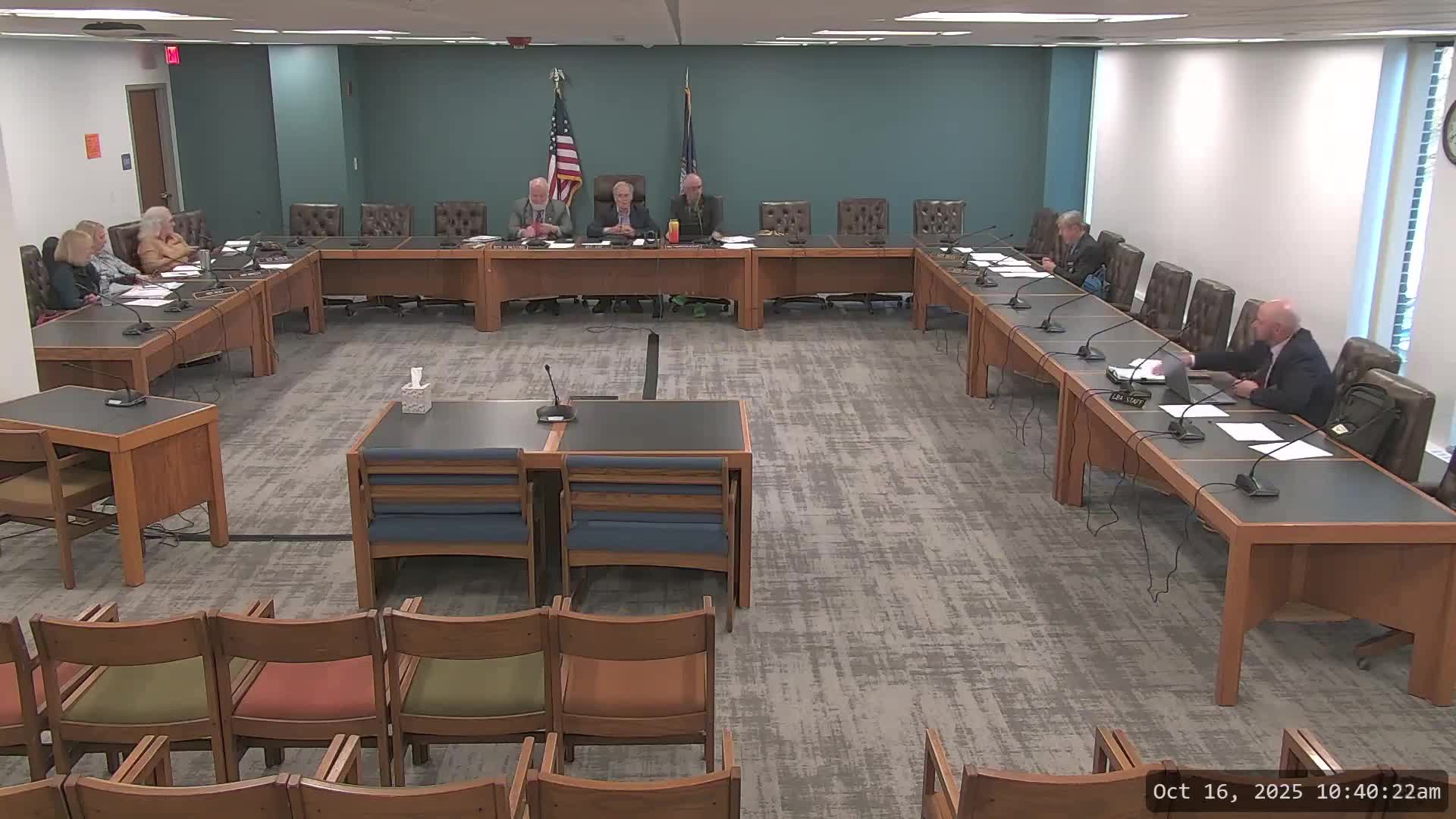Legislative work session approves amendment tightening local school budget increases; several bills tabled
Get AI-powered insights, summaries, and transcripts
Subscribe
Summary
A legislative work session voted 4-3 to adopt amendment 2025-3013h to House Bill 675, requiring a two-thirds local vote to raise district budgets beyond changes tied to student counts and inflation; the session also issued unanimous ITL (inexpedient to legislate) recommendations on several other bills.
Members of a legislative work session voted 4-3 to adopt amendment 2025-3013h to House Bill 675, a change that would require a two-thirds majority of a school district's legislative body to approve annual budget increases that exceed the combined change in student population and inflation.
The amendment, explained on the floor as modifying HB 675, removes prior five-year averaging for the Consumer Price Index (CPI) and student-count calculations, instead using annual changes. It delays some changes so the new calculation approach begins in 2028 and makes the amendment effective July 1, 2026.
Supporters said the amendment replaces multi-year averages with year-to-year adjustments linking allowable appropriation increases to the annual percentage change in ADMR (the student-count measure) combined with the annual change in CPI. Opponents said the timing and design raise concerns about adequacy of school funding and local control.
'This amendment requires a two-thirds vote of a district's legislative body to raise its annual budget above the combined ADMR and CPI measure, removes five-year averaging previously used for CPI and ADMR, and sets the CPI adjustment to an annual calendar-year change,' the bill sponsor (speaking for the amendment) explained during floor discussion.
Representative Murray, who opposed the amendment, said implementation now would be premature given pending legal questions about adequacy: "We're gonna have to oppose this, for three basic reasons. The state is in a state of flux right now with the lawsuits and, with the fallout for those lawsuits will do. We have complete unknowns with regards to adequacy." Representative Murray said the amendment would risk underfunding students by capping local budgets while the state's adequacy picture remains unsettled.
Representative McGuire asked whether a decline in ADMR would reduce the cap; the representative asked, "If ADMR declines, would the cap amount also decline?" The committee's legislative budget assistant responded that the CPI language is similar to existing statute language for education adjustments and that the CPI adjustment would be calculated as the annual change over the last completed calendar year.
Other committee members raised a drafting concern about the use of the word "average" in places where the amendment replaces five-year averaging; one member asked whether the text could allow different interpretations of "average." The legislative budget assistant said the CPI provision refers to the annual change in the calendar year, using the last completed 12 months to set the CPI adjustment.
The committee adopted amendment 2025-3013h by a 4-3 roll call vote and then voted 4-3 for the bill as amended (OTP, "ought to pass"). Recorded yes votes on both the amendment and the underlying OTP motion were Representative Popovich Mueller, Representative Weiler, Representative McGuire and Representative Erf. Recorded no votes on both were Representative Murray, Representative Kelly and one roll-call entry listed as Representative Bridal/Ricky (the transcript includes both stylings during roll calls).
Votes at a glance
- HB 675, amendment 2025-3013h: Adopted, roll call 4-3 (yes: Popovich Mueller, Weiler, McGuire, Erf; no: Murray, Bridal/Ricky, Kelly). Amendment text: requires two-thirds local legislative-body approval to increase a district's annual budget beyond combined annual ADMR and CPI change; removes five-year averaging; CPI calculated annually; effective July 1, 2026; adjustment approach begins 2028.
- HB 675 (as amended, OTP): Motion to recommend Ought to Pass carried 4-3 (same roll call names as above).
- HB 129: Motion ITL (inexpedient to legislate) carried 7-0.
- HB 133: Motion ITL carried 7-0.
- HB 563: Motion ITL carried 7-0.
- HB 671: Motion ITL carried 7-0.
- HB 716: Motion ITL carried 7-0.
- HB 773: Motion ITL carried 7-0.
Committee members and staff discussed next steps. Members noted that a minority report on HB 675 is expected when the matter goes before the full committee, and staff asked members to submit any reports promptly ahead of upcoming meetings.
Background and context
The amendment changes how allowable local school appropriation growth would be measured: it drops five-year average calculations in favor of annual percentage changes in ADMR and CPI, and it ties budget increase authority to a two-thirds vote at the local district legislative-body level when increases would exceed that combined annual measure. Committee members who opposed the amendment said the change could limit local budget flexibility at a time when the state's adequacy funding picture is unsettled because of ongoing lawsuits. Supporters emphasized the move away from multi-year averaging toward an annual adjustment formula.
The committee's legislative budget assistant clarified that the CPI measure in the amendment mirrors the language used elsewhere in statute for education-related CPI adjustments and that the CPI adjustment would be calculated as the annual change based on the last completed calendar year.
Ending
The vote sends HB 675 as amended to the next stage with a divided recommendation from this panel; committee members flagged drafting clarifications and policy concerns that could shape floor debate or a minority report at the full-committee stage.
